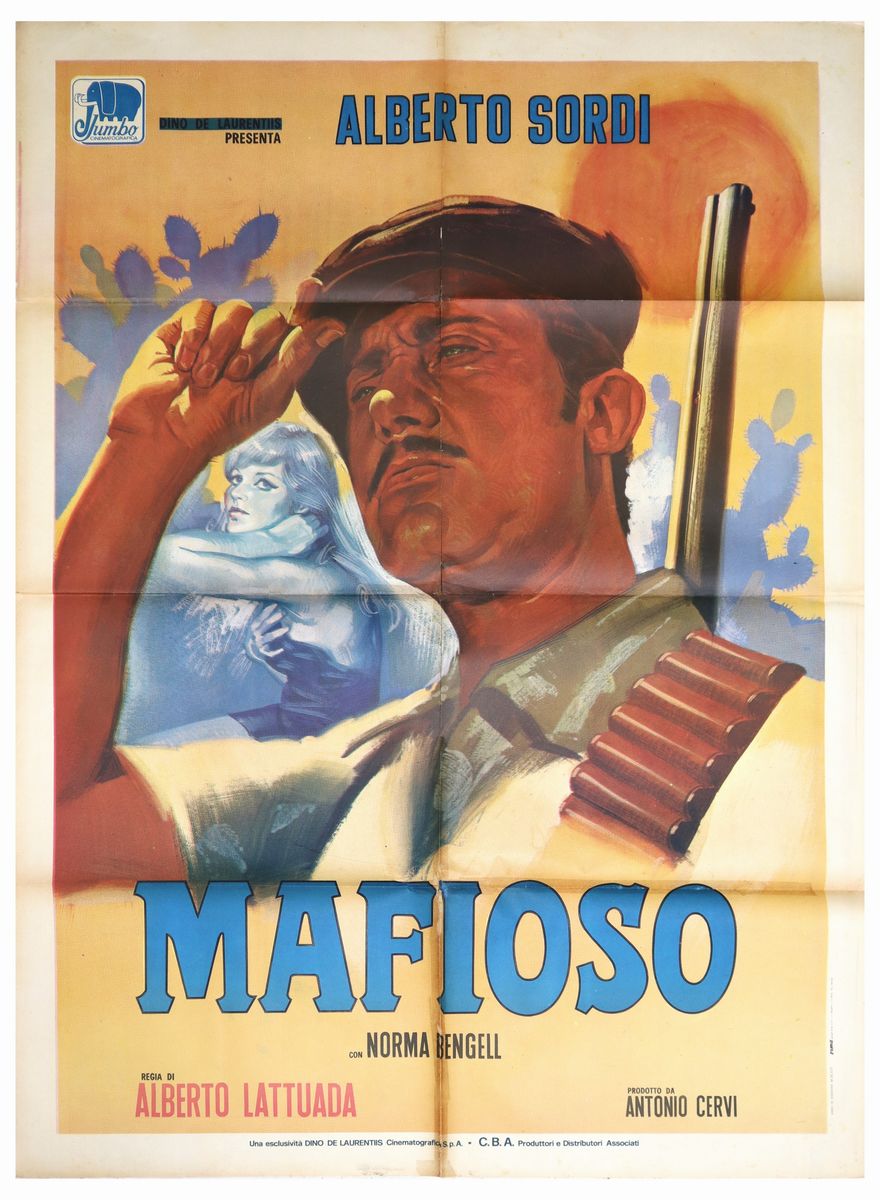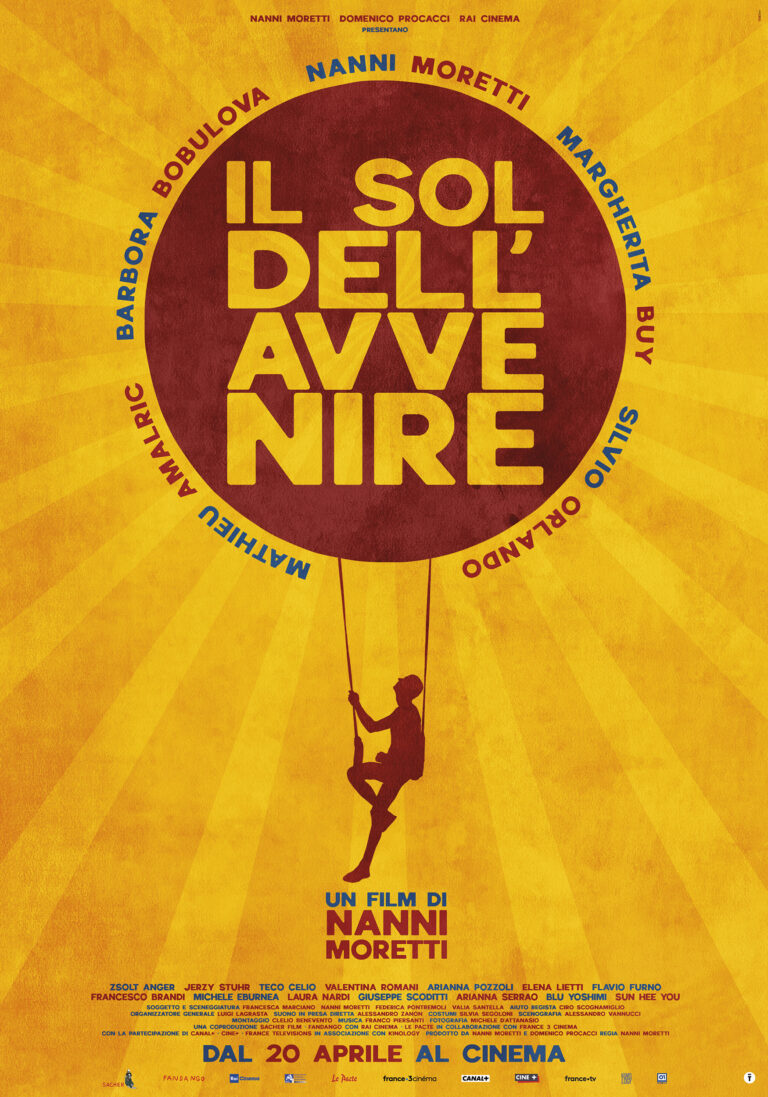
Released in 1962, Alberto Lattuada’s Mafioso is a strikingly original blend of dark comedy, social commentary, and crime drama. Starring the legendary Alberto Sordi, the film offers a unique exploration of Italy’s cultural divides, the complexities of Sicilian identity, and the insidious reach of the Mafia. While it is often categorized as a black comedy, Mafioso defies simple classification, moving fluidly between humor, suspense, and tragedy.
Plot Overview
At its core, Mafioso follows the journey of Antonio “Nino” Badalamenti (played by Alberto Sordi), a middle-management factory supervisor living in Milan. Nino is an archetypal everyman: affable, diligent, and proud of his success in the industrialized north of Italy. When his factory shuts down for a two-week vacation, Nino decides to take his wife, Marta (Norma Bengell), and their two daughters to his hometown in Sicily—a rural, close-knit village far removed from the modernity of Milan.
Initially, the trip is a comedic culture clash. Marta, a sophisticated northern Italian, struggles to adapt to the Sicilian way of life, while Nino revels in the nostalgic comfort of his roots. However, as the film progresses, the idyllic façade of his hometown gives way to darker undercurrents. Nino is summoned by Don Vincenzo (Ugo Attanasio), the local Mafia boss, who assigns him an unsettling task: to act as a hitman in a Mafia operation.
The final act of the film takes a chilling turn, as Nino, torn between loyalty to his family and the obligations imposed by his heritage, carries out the murder with mechanical efficiency. The once-jovial protagonist returns to Milan haunted, having come face-to-face with the harsh realities of the world he thought he had left behind.
Themes Explored in Mafioso
Cultural Divides: North vs. South
One of the most prominent themes in Mafioso is the dichotomy between northern and southern Italy. The film highlights the economic, cultural, and social contrasts between the two regions. Milan, depicted as a hub of progress and modernity, stands in stark contrast to the traditional, patriarchal society of Sicily. Through Nino’s dual identity as both a modern man and a Sicilian native, Lattuada examines the tensions that arise from trying to reconcile these conflicting worlds.
The interactions between Nino’s Milanese wife and his Sicilian relatives underscore these cultural divides. Marta’s bewilderment at the loud, chaotic family meals and the locals’ deep-seated customs provides moments of levity while subtly critiquing the rigidity of tradition.
The Shadow of the Mafia
At its heart, Mafioso is a searing indictment of the Mafia’s grip on Sicilian life. The film portrays the Mafia as an omnipresent force, quietly infiltrating every aspect of society. Initially, Nino’s hometown seems picturesque, but as the narrative unfolds, it becomes clear that the Mafia’s influence runs deep, dictating the lives and actions of the townspeople.
Lattuada avoids caricature or sensationalism, presenting the Mafia’s operations with chilling realism. The character of Don Vincenzo exemplifies this subtle menace—his polite demeanor and calm authority mask a terrifying power that can compel even an upstanding citizen like Nino to commit murder.
The Loss of Innocence
Nino’s journey is one of profound transformation. At the beginning of the film, he is a cheerful, optimistic man, proud of his hard work and the life he has built in Milan. By the end, he is a broken figure, his innocence shattered by his unwilling complicity in the Mafia’s violence. This transformation reflects the broader societal struggles of post-war Italy, as the country grappled with modernity while still tethered to the vestiges of its past.
Alberto Sordi’s Performance
Alberto Sordi’s performance as Nino is nothing short of masterful. Known primarily for his comedic roles, Sordi brings a remarkable depth to his character, balancing humor and pathos with equal skill. His portrayal of Nino’s internal conflict is both subtle and powerful, making the character relatable and deeply human.
Sordi’s comedic timing shines in the film’s lighter moments, particularly in the scenes where Nino’s northern and southern worlds collide. Yet, it is his nuanced depiction of Nino’s growing unease and eventual moral surrender that cements Mafioso as one of his most memorable performances.
Lattuada’s Direction and Cinematic Style
Alberto Lattuada’s direction is a key reason for the film’s enduring acclaim. His ability to blend comedy and drama creates a tonal complexity that mirrors the contradictions of the story itself. Lattuada uses long takes and naturalistic settings to immerse viewers in the world of Sicily, capturing its beauty and its oppressive traditions with equal clarity.
The film’s cinematography, handled by Armando Nannuzzi, is equally noteworthy. The stark contrasts between the bright, sun-drenched landscapes of Sicily and the shadowy interiors of Mafia-controlled spaces visually reinforce the film’s thematic tension.
Legacy and Reception
Mafioso was ahead of its time in its portrayal of the Mafia and its critique of societal norms. Upon its release, the film was praised for its sharp wit and moral complexity, though its darker themes were unsettling to some audiences. Over the decades, it has come to be regarded as a classic of Italian cinema, celebrated for its bold storytelling and its unflinching examination of power, tradition, and identity.
The film’s influence can be seen in subsequent depictions of the Mafia in cinema, from The Godfather to Gomorrah. Its mix of dark humor and social commentary paved the way for a more nuanced understanding of organized crime and its cultural ramifications.
Why Mafioso Remains Relevant
More than sixty years after its release, Mafioso remains a powerful and thought-provoking film. Its themes of cultural identity, moral compromise, and the corrosive effects of power are as relevant today as they were in 1962. The film’s unique blend of humor and tragedy continues to resonate with audiences, offering both entertainment and insight.
For viewers seeking a film that challenges conventions and leaves a lasting impression, Mafioso is an essential watch. It’s a testament to Alberto Lattuada’s vision and a reminder of the power of cinema to explore the complexities of human experience.





